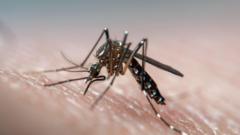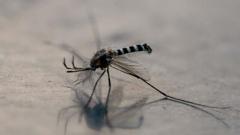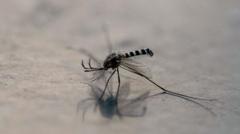A team from the University of California has successfully engineered male Aedes aegypti mosquitoes to be deaf, preventing them from mating and ultimately reducing the population of mosquitoes that transmit diseases to millions worldwide.
Groundbreaking Research to Combat Mosquito-Borne Diseases by Creating Deaf Males

Groundbreaking Research to Combat Mosquito-Borne Diseases by Creating Deaf Males
Scientists have discovered an innovative method to hinder the reproduction of disease-carrying mosquitoes by making male insects deaf, thus reducing the spread of viruses like dengue, yellow fever, and Zika.
In a fascinating approach to fighting diseases transmitted by mosquitoes, researchers have engineered male insects to be deaf, significantly impairing their mating capabilities. This novel strategy aims to combat the transmission of dangerous viruses such as dengue, yellow fever, and Zika. A group from the University of California, Irvine, focused their efforts on Aedes aegypti mosquitoes, which are responsible for infecting around 400 million individuals each year.
Mosquito mating is a complex process that typically occurs mid-flight, where males use their acute sense of hearing to locate females based on the frequency of their wing beats. Through a groundbreaking experiment, researchers modified a genetic pathway crucial for male mosquito hearing. They successfully created mutations in males that rendered them incapable of detecting mating calls, resulting in a complete lack of physical contact with females even when confined together for three days.
Female mosquitoes are the primary vectors responsible for spreading these diseases, making the prevention of their reproduction critical for controlling their populations. The research team reported findings in the journal PNAS, demonstrating that the gene knockout had an "absolute" effect, as mating among the genetically altered males was entirely eliminated.
Dr. Joerg Albert, a mosquito mating specialist from the University of Oldenburg in Germany, commended the researchers' work, recognizing the targeted attack on the sense of sound as a promising avenue for mosquito control. He emphasized the importance of further studies and management strategies, highlighting that without the hearing ability, males may struggle to find mates, thus risking the extinction of certain populations.
Alongside this genetic approach, the practice of releasing sterile males into areas beset by mosquito-borne diseases is under exploration. Though mosquitoes are seen predominantly as disease carriers, they play vital roles in the ecosystem as food sources for various animals and as pollinators, presenting a delicate balance between controlling their population and maintaining ecological harmony.











